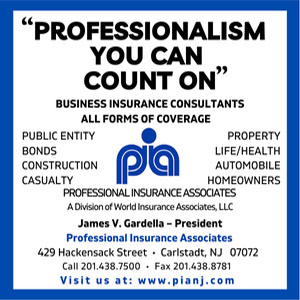
The African American Chamber of Commerce of New Jersey is working with businesses to promote cultural awareness, mutual respect and community
By John E. Harmon, Sr., IOM
Founder, President & CEO, African American Chamber of Commerce of NJ
The Garden State, home to over 9 million people; is a very densely populated state with beaches, suburbs, rural, urban, and mountainous communities. The people that live and work here and call New Jersey home represent a diversity of ethnicities and backgrounds. Blacks account for approximately 1.2 million people and unfortunately have the highest poverty, unemployment, low median income and have a net worth of approximately $5,900 vs $315,000 for whites. Moreover, black businesses in our state are under 100,000 and 93% of them are sole proprietorships.
Briefly, there are a few conclusions that are often drawn from these statistics: blacks lack the wherewithal to participate within the economic mainstream of our state; or this presents an opportunity to devise an intentional strategy to improve the economic standing for blacks in our state and improve the overall competitiveness in New Jersey.
The latter perspective has been the subject of great interest across the United States following the murder of George Floyd. Many corporate leaders and government officials have made bold statements and launched initiatives to address the social and economic disparities of blacks versus other demographics in New Jersey and across the country.
Historically and today the AACCNJ has embarked upon a dialogue that is the cornerstone of our mission: “to sustain black owned businesses and the communities where they domicile.” This charge is now being led by the US Chamber of Commerce (USCC) through an initiative entitled ‘The Equality of Opportunity’, which I am excited to be a part of.
Through this initiative, the focus is to connect black people and black businesses to employment opportunities, board seats and contract opportunities with corporations around the country. In addition, the USCC also incorporated criminal justice reform, health and education as other areas wherein blacks have been severely adversely impacted or need improvement.
In New Jersey, we are working with the NJ State Chamber of Commerce, NJ Business and Industry Association, NJ Bankers Association and healthcare providers to accomplish the similar aforementioned USCC goals in New Jersey corporations and state government. These collaborations are essential to fostering a better sense of cultural awareness, mutual respect and community while building trust and coexistence.
The irony is that making investments in exploring the best pathways to derive the commensurate value proposition, or return, is marginalized by perceptions that are not based on facts. These perceptions lead to the statistics that I stated earlier.
Unfortunately, we have policies and a way of doing business in our state that perpetuate economic disparities for blacks in New Jersey. For example, unlike New York, New Jersey does not have goals for minority and women-owned businesses, which means that blacks and others cannot participate in public contracting equitably.
On the other hand, in New York, former Governor David Paterson worked with the legislature to institute a 20% goal for minority and women-businesses in the state. later Governor Andrew Cuomo later increased the goal to 30%, resulting in greater reciprocity for taxpayer dollars, growth and opportunity for these business owners.
In the state of New York, these efforts have led to over $3 billion in public contracts with minorities and women in 2019-2020 and over $19 Billion since 2011. Meanwhile, blacks in New Jersey received approximately 1% of public contracts.
Also, in New Jersey, we have seen an expansion of Project Labor Agreements (PLA), a synonymous undertaking deployed by the trade unions to ensure that their members have substantial participation on public contracts without disruption from work stoppage due to strikes. Through this arrangement many companies that are signatory to the trades have enjoyed a significant preference on public contracting opportunities, i.e., Newark Airport Expansion, Wind Energy Projects in Salem and Paulsboro, the new Taxation and Health Human Services buildings and State House in Trenton.
It is important to note that New Jersey has a $5 million exemption on public contracts that allows non-union businesses in our state to participate in these taxpayer-funded public contracting opportunities without being a member of the trades. However, when we asked the Murphy Administration and the legislative leadership in our state to consider raising the $5 million PLA exemption to a level commensurate with that instituted by former President Obama ($25 million), they politely refused. Notwithstanding the use of PLAs in New York, they have still managed to deliver over $3 billion in public contracts to minorities and women-owned businesses.
There is an additional example that I would like to bring to your attention and that is the requirement in New Jersey which allows auto insurers to use credit scoring, education and occupation as proxies to determine auto insurance coverage. The New Jersey Senate passed a bill that would abolish this practice; however, it has been stalled in the assembly for far too long.
In closing, it is well documented that through diversity, equity, and inclusion (DEI), corporations and governments receive value and optimal return on their investment. We at the African American Chamber of Commerce of New Jersey would welcome the opportunity to explore ways to assist you in accomplishing your DEI goals.















